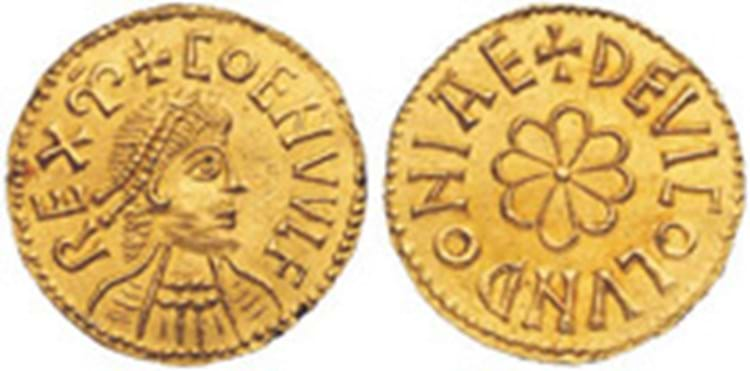
The Anglo-Saxon gold penny in question was sold at Spink in London in October 2004 for £230,000 (including premium) - a record for an English coin - and was bought by American dealer Allan Davisson. After applying for an export licence, the government issued a six-month export stop giving the BM the chance to match the selling price.
But in the intervening period, Mr Davisson revealed that he had received an offer of roughly £357,000 for the coin from a US collector. Under the regulations, the museum had to match the new offer to secure the coin.
But with pledges of £225,000 from the National Heritage Memorial Fund, £60,000 from the Art Fund and other donations including £10,000 from the British Museums Friends, the BM finally won the coin last week for $600,000 (£357,832).
"We're extremely grateful to finally have this coin," said Gareth Williams, the BM's curator of early medieval coins. "However, having to pay the extra price is unfortunate.
"Everything that occurred was entirely within the law as it stands, but we do feel the case reveals issues within the law that haven't occurred before and need to be addressed."
The coin, depicting Coenwulf, King of Mercia (796-821), went on display at the museum last week, joining six of the seven other recorded Anglo-Saxon gold pennies.
It was found by an amateur metal detector by the River Ivel in Bedfordshire in 2001. Soon afterwards they agreed to sell it to the BM. However, the museum established that the coin had been found on common land, and began a lengthy search to trace the landowner. It was the landowner who decided to sell at auction instead.
Gareth Williams said that this case also highlighted a flaw in the Treasure Trove Law. Under the law valuable finds deemed a hoard are automatically classified as the property of the nation. However, this currently only applies when two or more objects are discovered together. "This is sensible in the case of silver coins, as a great many single items are regularly being found," said Mr Williams. "But gold coins are much rarer and a single coin should be considered as treasure.
"We will push for a change when the law next comes up for review," he added.




